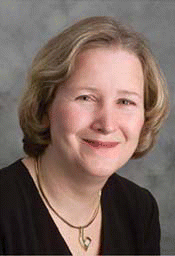On November 15, Pell Ann Wardrop, MD, walked into a testing center, where she sat down at a computer and took an exam. On that date, she and 77 other otolarygnologists across the nation were among the first doctors to take the new American Board of Medical Specialties (ABMS)-approved Sleep Medicine certification examination.
Explore This Issue
April 2008This new subcertification is offered through the American Board of Otolaryngology (ABOto), and is administered by the newly established ABMS conjoint board of Sleep Medicine. The conjoint board consists of the ABOto, the American Board of Internal Medicine (ABIM), the American Board of Pediatrics (ABP), the American Board of Neurology and Psychiatry (ABNP), and the American Board of Family Medicine (ABFM).
Dr. Wardrop, a member of the Sleep Disorders Committee of the American Academy of Otolaryngology-Head and Neck Surgery (AAO-HNS), has been helping get the word out about the certification program. She is in private practice in Lexington, KY and is also a clinical faculty member at the University of Kentucky School of Medicine. She encourages otolaryngologists to pursue the subcertification for a number of reasons.
For one, many otolaryngologists are already working with patients who have sleep disorders, and getting the subcertification provides doctors with a wider knowledge base about sleep conditions and their various causes. It’s not always about apnea, she reminded readers of ENT Today.
Another reason is that otolaryngologists need to be part of the wider community of sleep medicine, and make sure that issues from their specialty are heard. This can include subjects such as third-party payer decisions, patient access to a variety of treatment options for sleep-related breathing disorders, and ensuring that research includes otolaryngology-related aspects of sleep conditions.
Our participation adds to our ability to influence the training of all sleep medicine physicians, Dr. Wardrop said. Right now, many sleep medicine programs include very little on the otolaryngologist’s role in managing patients with sleep-related breathing disorders.
Genesis of the Program
So, how did the subcertification program evolve? Robert H. Miller, MD, MBA, Executive Director of the ABOto, provided ENT Today with some of the background. He explained that three of the boards within the ABMS (internal medicine, pediatrics, and psychiatry/neurology) started the process to develop a conjoint board to subcertify in sleep medicine a few years ago. The ABOto was invited to join this group, and, after careful consideration, it did.
The American Board of Sleep Medicine (ABSM, which is not an ABMS member), which once administered a certification exam for its own members, will no longer be administering that exam. The ABSM, however, will continue with its programs relating to education and international certification.

Leave a Reply